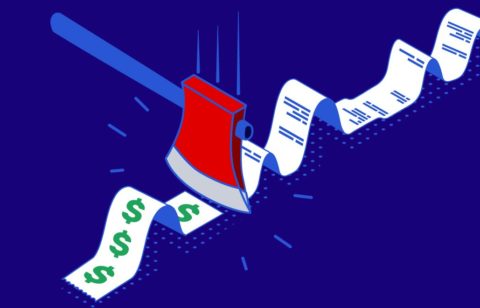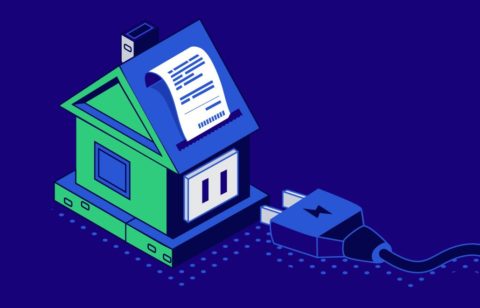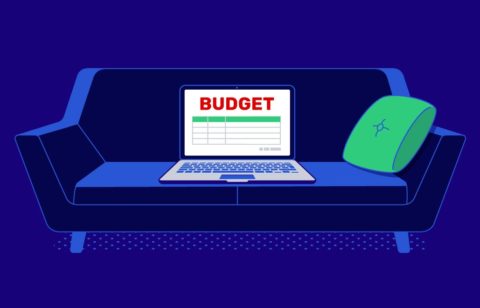Every year, thousands of new military veterans hit the street, fresh from serving their country in uniform and getting ready to adjust to life in the private sector once again. However, even though the military remains one of the most highly respected institutions and even though veterans enter the civilian job market with skills, experience, and discipline; the transition out of the military isn’t always an easy one. In fact, veterans often experience challenges with joblessness or money management that outpace civilian counterparts who never served. It doesn’t have to be that way. With a little bit of planning and by applying some of the discipline you developed while wearing a uniform, you can develop and manage a budget that helps you achieve all the financial goals you set for your post-military life. Here are some great tips for a veteran who needs help paying bills.
Get Smart
While many organizations and nonprofits can assist you, and there are many veterans’ benefits you can leverage, one of the best ways to ensure you’re financially successful in your post-military life is to educate yourself early and often. If you’re still in the military, you should take advantage of any education and training opportunities available to prepare for life in the civilian world. Many military programs and classes can help you improve your financial literacy. Additionally, most uniformed services have some sort of transition assistance program to help prepare service members for life as a civilian. Make sure you enroll in one before you leave the service (in most cases you’ll be required to) so you can be as prepared as possible for when you begin your post-military career.
If you’re already out of the service and you’re a veteran who needs help paying bills, you have many options to improve your financial literacy. Chances are strong that there’s a community college or some online program you can enroll in to get better at budgeting your money. Finding a good accountant or financial advisor can also be a great way to get your post-military financial situation off on the right foot. Trusted financial experts can give you good advice about subjects including budgeting your money, setting goals for retirement or major life purchases, and tax preparation. Finally, taking time to read books, magazines, and financial websites that offer advice about financial issues is a great way to improve your ability to budget money effectively.
Get Help
If you’re a veteran who needs help paying bills, you don’t have to go it alone. Fortunately for you, hundreds of nonprofits and other organizations are available that can help get your finances back on track. No matter where you live, chances are strong that you can find a good organization locally or by searching online that’s ready to provide you the assistance you need to help solve the problems you’re facing and get your budget back under control. Beyond funds or other financial assistance, many of these organizations can provide you critical advice and support, too. Linking up with local or national veterans service organizations (VSOs) and nonprofits can also help you build out your network of veterans interested in improving their financial outlook and help you maintain some of the camaraderie you enjoyed while in uniform.
The Veterans of Foreign Wars and American Legion are two great places to start on your search for assistance. These are two of the oldest and largest veterans’ service organizations out there, and they offer a host of programs to help veterans who are struggling financially. The VFW, for example, offers grants of up to $1,500 for struggling veterans. Likewise, the American Legion offers temporary financial assistance to veterans who need help paying bills. Other newer VSOs, such as the Iraq and Afghanistan Veterans of America (IAVA) offer veterans outstanding advice and direct support as they seek post-military employment. Finally, dozens of nonprofits and other organizations assist veterans who are seeking to improve their housing situation. So, if you’re a veteran that needs a little bit of assistance or direction, make sure you reach out to these organizations to see if they can help.
Use Your Benefits
Another great way to get the most financially out of your veteran status is to leverage your military benefits. The U.S. Department of Veterans Affairs, commonly known as the VA, is one the largest departments in the Federal government, second only to the Department of Defense. Veterans can be eligible for a wide variety of benefits administered by the VA, depending upon their status as well as how long they served. For example, military retirees and those who have service-related disabilities can use their VA medical benefits for treatment and prescriptions, which can save you a fortune on health insurance and out-of-pocket medical expenses.
Additionally, veterans can also use the benefits granted them through the GI bill to pay most of their expenses to attend college or vocational training, which can improve their job prospects over the long term. If college isn’t your thing, your GI Bill benefits can also cover veterans’ participation in apprenticeship programs, which can be helpful for those interested in entering a skilled trade. The departments of Education and Agriculture also have programs to assist veterans who decide to work as teachers or farmers, respectively. Finally, many other federal and state government agencies have benefits available to veterans, so it’s worth doing a little research to determine what you’re eligible for.
Leverage Bill-paying Help
If you’re a veteran who needs help paying the bills, don’t fret, because you’re in good company. After you hang up your uniform, try leveraging your benefits, building out your network of veteran nonprofits and VSOs, and take the time to educate yourself on personal finance and financial matters. If you do so, you’ll be ready to transition seamlessly from the military into a rewarding, financially secure second act as a civilian.





